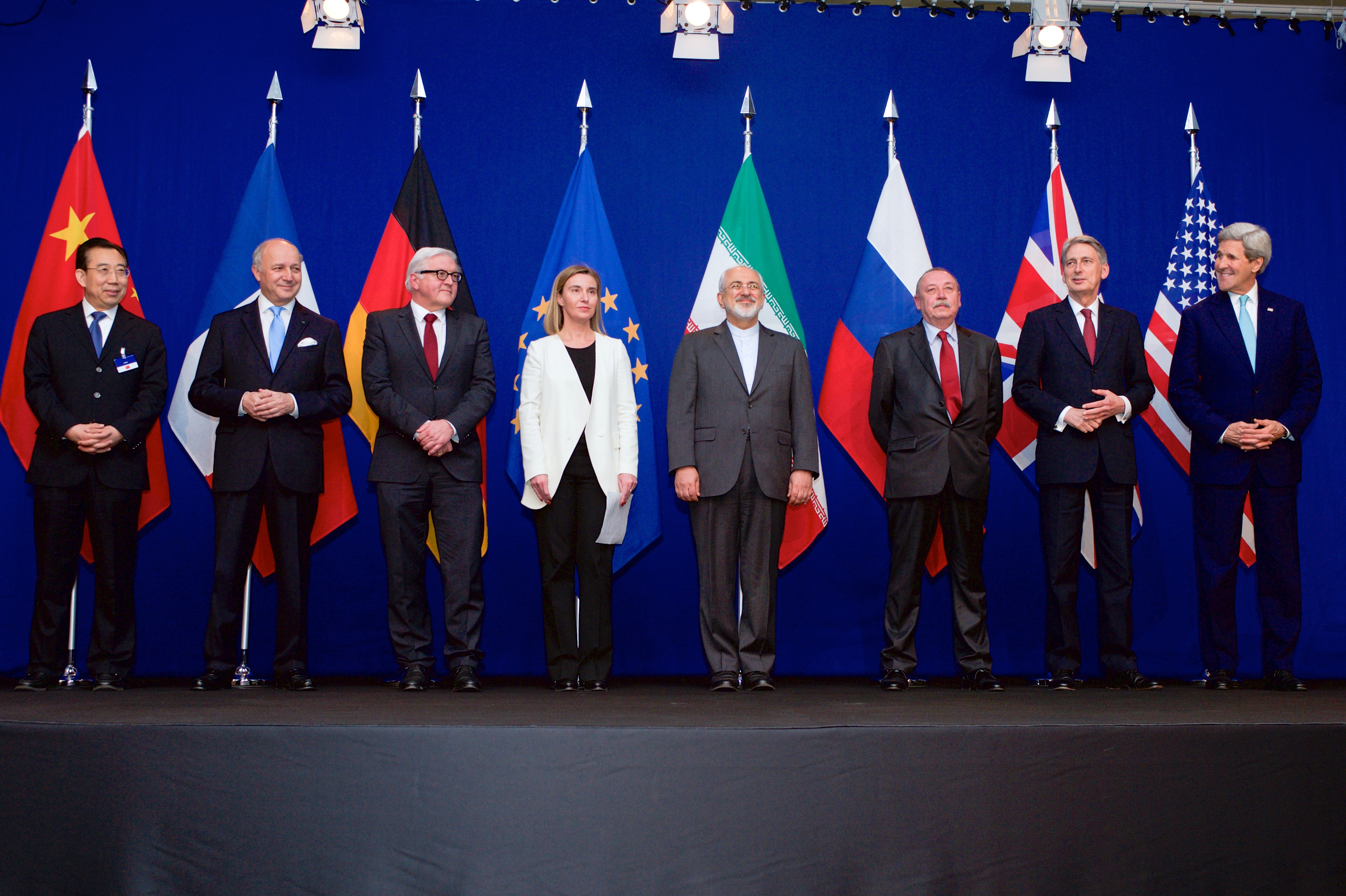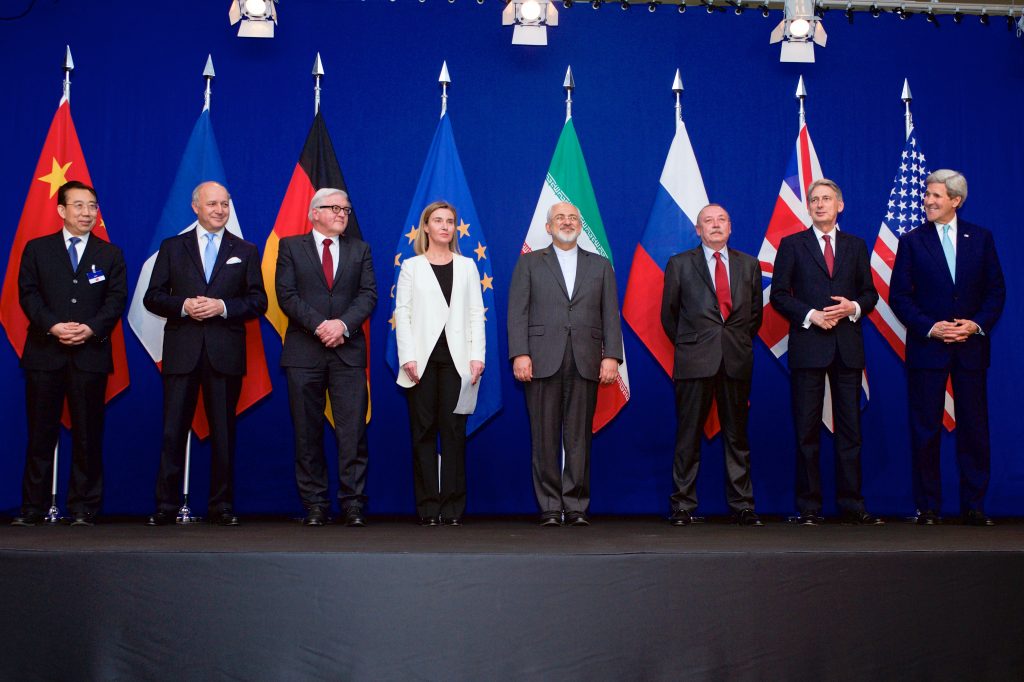 On July 14, hours after the United States, Russia and four other world powers concluded a nuclear accord with Iran, Russian Foreign Minister Sergei Lavrov declared that the deal negated any reason for a US missile defense network in Europe. We should now prepare ourselves for the inevitable political and propaganda onslaught Russia will mount against those missile defenses. After all, both the Bush and Obama administrations repeatedly stated that their official purpose was to defend against Iranian missile threats—which the new agreement shoves back into the relatively distant future.
On July 14, hours after the United States, Russia and four other world powers concluded a nuclear accord with Iran, Russian Foreign Minister Sergei Lavrov declared that the deal negated any reason for a US missile defense network in Europe. We should now prepare ourselves for the inevitable political and propaganda onslaught Russia will mount against those missile defenses. After all, both the Bush and Obama administrations repeatedly stated that their official purpose was to defend against Iranian missile threats—which the new agreement shoves back into the relatively distant future.
Moreover, several Russian experts like Vladimir Dvorkin and Alexei Arbatov insist these deployments are physically incapable of striking at Russia’s nuclear weapons. Moscow undoubtedly knows Europe and North America have no viable defenses against its missiles. This helps explain why Russia so frequently threatens Europe with nuclear missiles—a tactic dating back to Khrushchev.
Aside from the Kremlin’s nuclear rhetoric, American military leaders warn that a greater willingness to talk irresponsibly about nuclear weapons suggest an increased likelihood of their early use in a future European conflict. Just witness Russia’s repeated submarine and fighter-jet incursions of Scandinavian, British and US sovereignty; the stationing of dual-capable Iskander missiles in Kaliningrad where they can threaten the entire Baltic littoral, including parts of Germany, and their similar deployment to the Crimea and perhaps Armenia from where they can strike not only the Black Sea region but also the South Caucasus. Moscow has added more than one hundred nuclear weapons in the Barents and White Seas in the Arctic. Between October 2013 and October 2014, the Kremlin boosted the number of deployed nuclear warheads from 1,400 to 1,643, while the number of deployed ICBMs, SLBMs, and heavy bombers (TU-95 and TU-160) rose from 473 to 528.
All this activity, along with a corresponding large-scale conventional rearmament of the Arctic, has occurred in a region where nobody threatens Russia and where, in fact, the United States and NATO can barely sustain a viable military presence given the Alliance’s lack of interest in the Arctic as a military theater. So what exactly does Moscow fear, and what it is trying to accomplish? These large-scale nuclear deployments suggest that not only does the Russian leadership feel hysterically threatened, but it also seems more ready than before to threaten and even wage nuclear war against the West. Despite Russia’s large-scale conventional buildup, many of its weapons are substandard. The recent crashes of TU-95s and other aircraft indicate that Moscow is wagering more heavily than it will openly admit on nuclear weapons.
In light of Russia’s expected propaganda campaign to get rid of US missile defenses, does it make sense to leave Europe helpless against nuclear as well as conventional Russian threats? If Moscow knows that those defenses cannot target Russia’s nuclear and other missiles, then it is likely to make more threats, behave more aggressively, and mount more noisy campaigns, as it did in the 1980s. The Kremlin’s goal here wouldn’t just be to intimidate European governments, but to remove the last real major and visible sign of a constant and robust US military presence in Europe—thereby achieving its long-standing goal of fragmenting NATO and the transatlantic alliance. In fact, this whole campaign against missile defenses aims to achieve exactly that—and the fact such defenses are a tangible sign of the alliance is what Moscow really finds objectionable.
Under these circumstances, and given mounting US pressure on Europe to pay more for its own defense, does it really make sense to slash the number of US troops there when current levels are already insufficient? One officer told me the Pentagon is trying to make 30,000 forces look like 300,000. Sadly, that magic trick is impossible—and efforts to make it look real won’t fool Russia one bit. If we leave Europe vulnerable to nuclear threats because our missile defenses aren’t good enough, why would we also weaken the conventional deterrent, tempting Putin? From this standpoint, Washington’s decision to reduce its forces in Europe represents the antithesis of sound policy and sound strategy.
And while the European Union is about to offer Greece another $95 billion on top of the $320 billion it has already loaned—and that Greece will probably never repay—why aren’t we doing more for Ukraine militarily and economically? Anyone wishing to strengthen our alliances and Europe’s security must answer these questions, because the Obama administration either can’t or won’t. And if America will not lead, Europe will not follow.
Stephen Blank is a Senior Fellow at the American Foreign Policy Council.
Image: The ministers of foreign affairs and other officials from the P5+1 countries, the European Union and Iran while announcing the framework of a comprehensive agreement on the Iranian nuclear program in Écublens-Lausanne, Switzerland on 2 April 2015. Hours after the United States, Russia and four other world powers concluded a nuclear accord with Iran on July 14, Russian Foreign Minister Sergei Lavrov declared that the deal negated any reason for a US missile defense network in Europe. Credit: US Department of State
